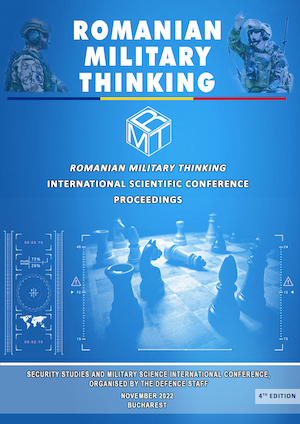Perception, Cognitive Dissonance and Nuclear Deterrence in the Information Age, Possible Implications for the Euro-Atlantic Security Architecture in the Context of a New NATO Strategic Concept
Perception, Cognitive Dissonance and Nuclear Deterrence in the Information Age, Possible Implications for the Euro-Atlantic Security Architecture in the Context of a New NATO Strategic Concept
Author(s): Olga Raluca CHIRIAC
Subject(s): Politics / Political Sciences, Politics, Economy, Security and defense, Military policy, ICT Information and Communications Technologies, Geopolitics
Published by: Centrul tehnic-editorial al armatei
Keywords: cognitive dissonance; deterrence; European defence; perception; NATO; strategic stability;
Summary/Abstract: The February 2022 military aggression on Ukraine has sent shock waves across European capitals as well as across the Atlantic. This “new normal”, namely a conventional war in twenty-first century Europe, is both hard to process and inherently ominous as to the future of the European security architecture and strategic stability on the continent. The aim of the article is to analyse the combined effects of technological advances in information/computing technologies and human cognition on strategic choices such as nuclear deterrence strategies. The paper is looking to address the proposed research questions through a cognitive psychology lens, with a particular focus on perception and cognitive dissonance. The plasticity of both the geopolitical environment and the information space present the optimal conditions for propagation of cognitive errors in human decision-making. The article is taking a closer look at what said vulnerability means for the Euro-Atlantic security architecture, most specifically for the North Atlantic Treaty Organization.
Book: Romanian Military Thinking International Scientific Conference Proceedings
- Page Range: 30-41
- Page Count: 12
- Publication Year: 2022
- Language: English
- Content File-PDF

